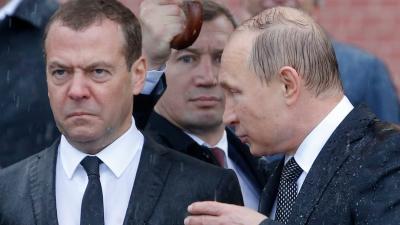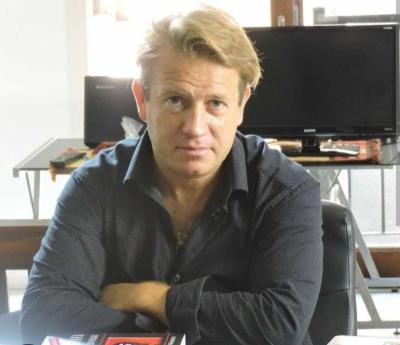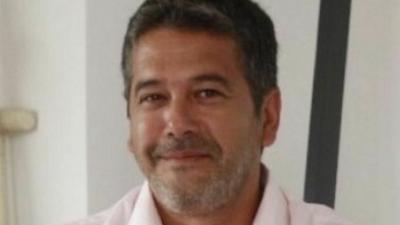In Mel Gibson’s acclaimed film Braveheart, the infamous English king, Edward “Longshanks” meets with the leading nobles of the realm to decide how to approach control of Scotland. Longshanks decides to reinstate the “prima noctae”, in which the nobleman has carnal rights on the wedding night of any commoner who marries in his domain, in order to get “the kind of nobles we want for Scotland”.
This story, reflected in the film, is a myth, but it was meant to show how far Longshanks was willing to go to wipe out his enemies by flooding his territory with the worst kind of men. A tactic that has been repeated over and over again throughout history and, although in the Russian-occupied territories of Ukraine, Vladimir Putin has not imposed the “prima noctae” in favour of his favourite oligarchs, his forces commit war crimes on a daily basis: mass graves, the use of rape as a weapon of war, torture and so on. Russia is sending the worst kind of men to Ukraine.
Prisoner recruitment has been one of the keys to providing the cannon fodder needed to maintain pressure on the frontline, recruitment initiated by the Wagner group in 2022 and followed up by the Ministry of Defence in early 2023. After Prighozin’s “accident” and the dismantling of Wagner as a private army, prisoner recruitment has soared and, two years after the start of the invasion, Russia has been forced to close prisons because most of its inmates have been sent to fight in Ukraine. In October 2023, Russia’s deputy justice minister, Vsevolod Vukolov, revealed that the Russian prison population stood at 420,000 in February 2022, but had fallen to 266,000 prisoners: “If 10 years ago the inmates in our prisons numbered almost 700,000 individuals, now we have about 266,000 in correctional colonies.” Considering that Wagner recruited some 50,000 prisoners, the Russian Ministry of Defence has doubled that figure. For Olga Romanova, director of the human rights organisation Russia Behind Bars, a group declared a “foreign agent” by the Russian government in May 2020, “this is an astonishing figure. There were 420,000 prisoners at the beginning of the war, and we know that Prigozhin took about 50,000. This means that the Ministry of Defence has probably recruited about 100,000 people for the war.”
Nothing new in Russia. During World War II, Stalin, so admired by the current occupants of the Kremlin, recruited hundreds of thousands of GULAG prisoners to send to the front. Orthodox priests were also released. The Russian Orthodox Church, which had suffered criminal persecution by the communist authorities, was rehabilitated to assist the war effort under the absolute control of the state. A relationship that has continued to this day.
There are other similarities between Vladimir Putin and the villain Longshanks from Braveheart. In addition to the accidents that befall all those who are not to his liking, for example, falling from a window as shown in the film, both show an utter disregard for the lives of their people. In the film, during the Battle of Falkirk, Longshanks orders his archers to fire into the melee between his army and the Scots because “arrows will kill their own too. We have reserves.” Ignoring casualties because you have more men is nothing new either, and was one of the most common tactics employed by the Red Army during the Second World War. We see it now in Ukraine, and the capture of Bajmut and Adivka are proof of the Russian command’s disregard for the lives of its men.
However, Russia is not the Soviet Union of World War II, when the average age was 16, and, like Ukraine, it is suffering a severe demographic crisis. It has a much larger population, yes, but it cannot afford the sacrifices of the past and the new mobilisations are highly unpopular because of the huge casualties suffered by Putin’s forces. Pavel Gubarev, the self-proclaimed ‘people’s governor’ of Donbas in 2014, claimed in October 2022 that Ukrainians were Russians possessed by the devil and had to be convinced or else “exterminate 1 million, 5 million or all of them.” After serving in the “special military operation”, his recent views make him a candidate for falling out of a window: “I think that, in general, when we hear about our irrecoverable losses, many people's hair will stand on end. You can’t talk about it now, you can’t think about it, but it will make everyone’s hair stand on end.” These words explain the significant increase in the recruitment of prisoners, and even the striking presence of foreign soldiers, such as Cubans and Africans, to mitigate “irrecoverable losses.”
At the end of March, Polish volunteer Piotr Mitkievicz, who has been fighting in Ukraine with the International Legion since May 2022, gave several interviews to the Polish media and explained the modus operandi of the Russian army on the frontline: “In the Russian army, soldiers are divided into the most useful and the least useful. In the first wave, the less useful are sent out with a good soldier in command, who withdraws halfway and the rest don’t come back. Then comes the second wave, where there are three trained soldiers who may return. Once they have located our positions, the artillery opens fire and then the trained soldiers attack.” With such tactics, it is hardly surprising that Russia has initiated a new mobilisation of 150,000 men that the Kremlin has pointed out “will not be sent to Ukraine”, which is hard to believe. The Russian Defence Ministry’s intention is to create two new combined arms armies, along with 14 divisions and 16 brigades later this year, forces that will not only be deployed to Ukraine, but also to the borders with NATO countries. But there is no need to worry because “Russia has never attacked anyone in its history”, as Kremlin spokesman Dmitry Peskov said four days before nearly 200,000 Russian troops invaded Ukrainian territory.
Braveheart shows a whole series of characters who can be defined as the worst kind of men. Some, like the soldiery and their lords, kill, pillage and rape, and others, like Longshanks and his particular Kremlin, are utterly unscrupulous. But the worst kind of men are not only in the film’s villains, for on the side of the good guys, while enemies lurk, the nobles are unable to agree or make a decision. “They wouldn’t be able to agree on the colour of shit,” growls one of William Wallace’s lieutenants in despair at the sterile debates and inaction, and, indeed, some of those undecided will not hesitate to be bought by the enemy, becoming traitors. “The darkest places in hell are reserved for those who maintain their neutrality in times of moral crisis”, wrote Dante Alighieri in the early 14th century. Nothing has changed since then, and those who claim neutrality in the face of evil will also go down in history as the worst kind of men.
Read also
Nicolás Márquez: “Allende was a usurper of power who had to be deposed by force because he was surrounded by terrorists and foreign agents”.
Interview with Nicolás Márquez, essayist and political analyst.
Álvaro Peñas
Bohdan Chuma: “Ukraine’s history is a normal and typical history of a European nation”
Putin is trying to write a history of the Russian Empire that begins with the Tsarist Empire, continues with Soviet Communism, the Red Empire, and now continues under his government.
Álvaro Peñas
Nacho Montes de Oca: “The best way to disarm the Russian propaganda is to go back to the basic point, which are values”
Nacho Montes de Oca is an Argentinean writer and journalist, known for his books of essays dedicated to historical research and analysis of wars and other contemporary conflicts.
Álvaro Peñas
That Wonderful Feeling of Normality
The Mathias Corvinus Collegium held the MCC Feszt from 27-29 July, an event that in its third edition brought together thousands of people – more than 47,000 as compared to the 10,000 who had attended it the first time in Esztergom.














Comments (0)